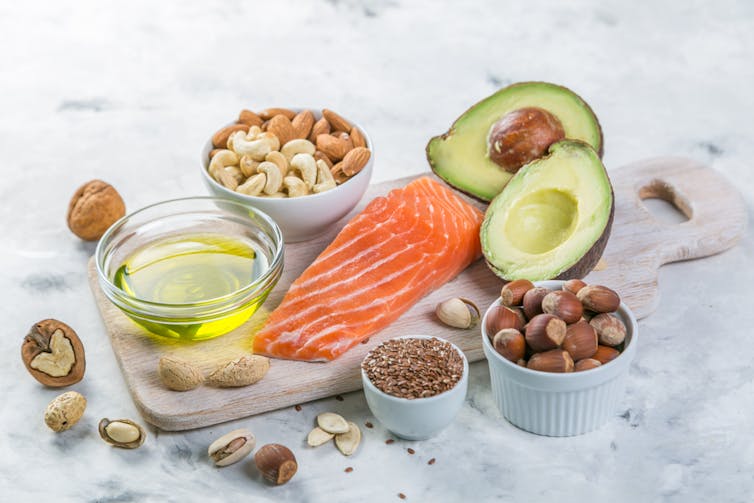Ketone drinks: why we’re testing the effects of this supplement used by elite athletes on older adults

By Anna Nicholas, University of Bath
Ketone drinks are used by elite athletes to improve focus and enhance performance. But could they also help people to live healthier for longer?
Considered “super fuels” among some endurance athletes and health enthusiasts, ketone drinks are now being tested in clinical trials for a range of conditions including Parkinson’s disease, type 2 diabetes and heart failure.
Ketones are natural molecules that are produced by the body for energy. Research shows they have profound effects on our physiology, influencing metabolism, immunity and possibly even ageing.
Ketones are produced by the liver when the body faces a shortage of glucose (sugar). This happens during periods of fasting, prolonged exercise or when eating a very low-carbohydrate “ketogenic diet”. Under these conditions, the liver converts fats to ketones which are then used to provide a critical fuel for tissues such as the heart and the brain.
Following a ketogenic diet or fasting can be difficult. Keto diets are restrictive, allowing a maximum of 50g of carbs per day – about the amount you’d find in two bananas.
Ketone drinks offer a way to deliver ketones to the body without having to cut carbs. Research has shown that these drinks can enhance cognitive function, regulate blood sugar and improve blood vessel function in adults with obesity and type 2 diabetes.

We’ll know in 18 months
In a new study being launched at the University of Bath, my colleagues and I now want to explore the effects of ketone drinks on health in older adults.
As we age, our immune, metabolic and cognitive systems naturally decline, leading to frailty and increased risk of disease. These changes can lower quality of life and reduce healthspan – the number of years we live in good health. This new study aims to investigate whether consuming a ketone drink three times a day for four weeks can improve physical and cognitive health in older adults.
During the experiment, participants will undergo tests over two weeks (to establish their baseline measurements) before starting the four-week supplementation period. During this time, they will consume either a ketone drink or a placebo three times a day, while their blood sugar control, physical activity and heart rate are monitored.
Before and after the supplementation period, we will collect blood, breath and fat tissue samples to measure markers of metabolic health, inflammation and immune function. Participants will also complete cognitive tests, physical function assessments and quality-of-life questionnaires.
The ketone drink we have chosen for this study uses a ketone monoester, which is widely used in human studies because of its ability to rapidly raise blood ketone levels. But it has some drawbacks. It has an unpleasant taste, which means people might drop out, and it’s expensive.
While two and four weeks of ketone supplementation has shown positive outcomes in adults with obesity and with type 2 diabetes, there is a lack of supplementation studies focused on older adults. Also, the effects of regular ketone supplementation on our fat tissue, a key contributor to low-level chronic inflammation in ageing, remain unexplored.
The results of this study, expected in 18 months, will shed light on these important areas.
With global populations increasingly ageing, finding ways to help people live healthier for longer is becoming ever more pressing. Ketone drinks could be part of the solution, allowing us to tap some of the benefits of fasting and ketogenic diets without enduring dietary restrictions.
As we continue to recruit participants for our study, we are excited to explore the potential for ketone drinks to help people age better. This study aims to offer a “proof of principle”, which we hope will contribute to the research in this exciting field.![]()
Anna Nicholas, PhD Candidate in Nutrition & Metabolism, University of Bath
This article is republished from The Conversation under a Creative Commons license. Read the original article.



